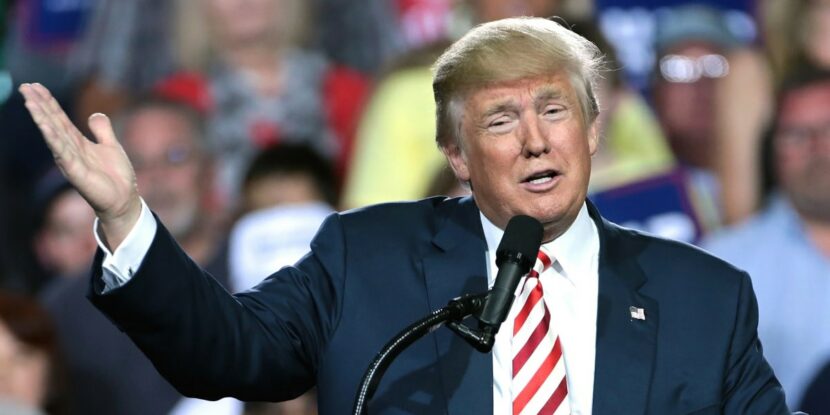Last week, President Trump told Bloomberg News that he is considering indexing capital gains to inflation. If the President follows through with this plan, his timing really couldn’t be better. This free market policy change should send market sentiment soaring right before the midterm election.
I have previously written that indexing capital gains to inflation would be “the single-most pro-growth policy that stands a shot at being enacted this year.” Why? Because President Trump doesn’t need to go through Congress in order to accomplish this — he just needs to sign an executive order directed to Treasury Secretary Steve Mnuchin.
Currently, Americans face tax penalties on investments that actually lost value after being adjusted for inflation. Indexing capital gains to inflation would protect stock investments and real estate purchases (yes, even buying a house) from hidden taxes due to inflation.
Repealing the capital gains inflation tax has longstanding support from Reagan-era supply-siders including Arthur Laffer and National Economic Council Director Larry Kudlow, but in a terrific New York Post op-ed, James Carter and Peter Roff remind us that it used to have broad support among Democrats too:
Congressional Democrats don’t want to admit it, but they were once among the staunchest advocates for indexing capital gains for inflation — a move President Trump announced late last week he is considering. It was met with disapproval from congressional Democrats like Sen. Chuck Schumer and Rep. Richard Neal.
Yet 26 years ago, on an otherwise ordinary February afternoon, Democrats voted overwhelmingly to make it the law of the land.
Back in 1992, when Democrats wanted to capitalize on President George H.W. Bush’s disastrous about-face on his campaign promise not to raise taxes, they — led by House Ways and Means Committee Chairman Dan Rostenkowski (D-Ill.) — proposed an amendment to the Tax Fairness and Economic Growth Act of 1992 that they argued would have made the tax code fairer to middle-class and working Americans.
The Republicans in Congress at the time didn’t much care for it. Rostenkowski’s amendment included yet another increase in the top marginal rate (on top of the one Bush 41 had already signed into law) and an increase in the dreaded Alternative Minimum Tax.
But it also would have indexed capital gains to inflation for newly acquired assets.
[…]
Today, Democrats routinely disparage capital-gains indexation as a “handout to the rich” and a “broken promise to workers.” That rhetoric bears little resemblance to Steny Hoyer’s (D-Md.) observation on Feb. 27, 1992, the day of the vote on Rostenkowski’s amendment, that the measure had “the best interest of the middle-income family in mind.”
[…]
Of the 220 Democrats who voted to index capital gains, 15 still serve in the House and seven are in the Senate. They now hold some of the most senior leadership positions among Democrats in Congress.
[…]
“If we really want to increase growth,” said Chuck Schumer, the then-future Senate minority leader, “there are proposals that we can do. I would be for indexing all capital gains, savings and borrowings.”
Listen to Schumer. He is — or, at least, was — right.
Indexing capital gains to inflation is good politics and good policy. If President Trump signs this executive order, it will give Americans greater economic freedom and security, and the stock market will thank him for it. This is the President’s economic Trump Card to keep the economy firing on all cylinders leading up to the election. Let’s hope he plays it.
Photo credit: Gage Skidmore


